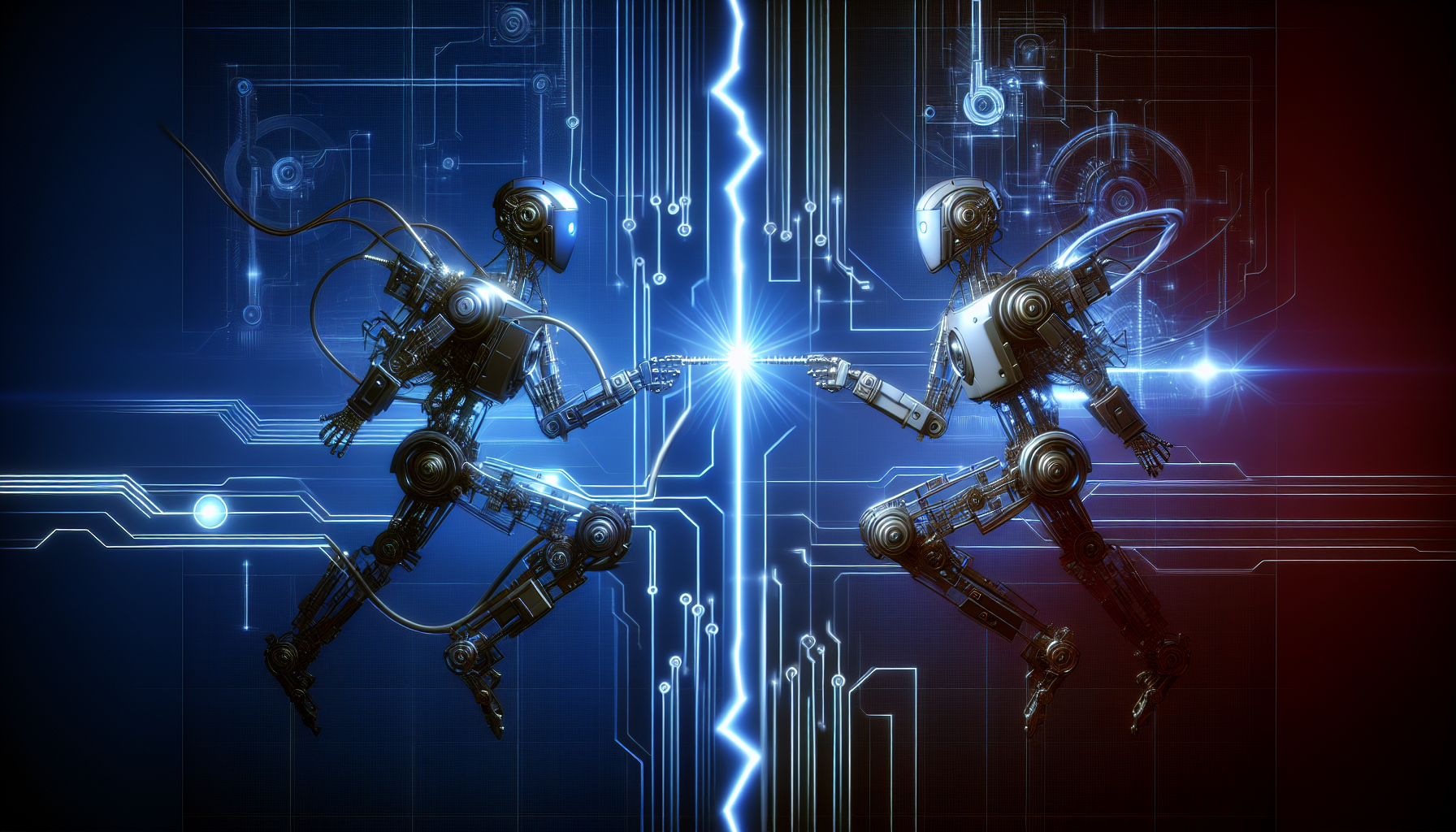Extinction or Adaptation: Will Healthcare Support Jobs Survive the AI Revolution?

Automation and AI have already begun reshaping the healthcare industry, streamlining processes and enhancing operational efficiency. In support roles, many routine tasks are increasingly being performed by machines. Administrative duties such as scheduling appointments, updating patient records, and processing billing and insurance claims can now be automated using AI-powered tools. For example, chatbots and virtual assistants are being deployed to handle patient inquiries, book follow-up visits, and send reminders—tasks traditionally performed by front-desk staff. Similarly, advancements in natural language processing (NLP) allow AI to transcribe medical notes and complete documentation, reducing the workload for administrative personnel. Wearable health technology and remote monitoring devices have also introduced automation into clinical support roles. Devices that track vital signs—such as heart rate, blood pressure, and oxygen levels—can now feed real-time data directly into electronic health records (EHRs). This eliminates the need for medical assistants to perform manual checks and data entry, saving time and reducing human error. The benefits of these innovations are evident: increased speed, accuracy, and efficiency. Yet, they also raise pressing concerns about job displacement. If machines can handle repetitive and predictable tasks more efficiently, what role will human workers play in the healthcare system of tomorrow?
The Human Touch: A Crucial Element Machines Cannot Replicate
While AI excels at processing data and performing mechanical tasks, it lacks the human qualities that are essential in healthcare. Empathy, emotional intelligence, and interpersonal communication remain irreplaceable, particularly in roles that involve direct patient interaction. This underscores the potential for healthcare support jobs to adapt rather than disappear. Consider a scenario in which a patient is anxious before surgery. While a monitoring device might track vital signs or administer medication, it cannot provide reassurance, answer personal questions, or address fears with compassion. Similarly, when patients face a life-altering diagnosis or seek care for mental health issues, they are far more likely to trust and confide in human caregivers than in a machine. Support staff play a key role in building and maintaining these human connections. Medical assistants and patient care technicians often serve as the first point of contact for patients, offering guidance, comfort, and understanding. These human interactions cannot be replicated by algorithms, no matter how advanced they become. This unique value proposition suggests that healthcare support roles will not vanish but will evolve to focus more on the human-centric aspects of care. For instance, support workers could take on enhanced responsibilities as "patient navigators," helping individuals navigate the complexities of healthcare systems while addressing their emotional and cultural needs. This shift would allow them to complement automated systems rather than compete with them.
Emerging Roles at the Intersection of Technology and Care
Far from being a threat, the integration of AI and automation also presents opportunities to create new roles that blend human expertise with technological capabilities. As healthcare becomes increasingly data-driven, support workers may transition into positions that emphasize oversight, coordination, and the interpretation of AI-generated insights. For example, medical assistants could evolve into "AI facilitators," whose primary role is to monitor and manage intelligent systems, ensuring that algorithms function as intended and flagging anomalies for further review. Similarly, positions like "health technology specialists" could emerge, focusing on training patients and clinicians to use digital health tools such as telemedicine platforms, wearable devices, and AI-powered applications effectively. The growing demand for personalized healthcare is another area ripe for innovation. Patients increasingly expect tailored treatment plans that reflect their unique needs and preferences. This trend could drive the creation of specialized roles like "personalized care coordinators," who combine AI-driven insights with a human touch to deliver individualized care. These emerging positions highlight a critical shift: the future of healthcare support work will require a balance between technical proficiency and human-centric skills. Workers who can bridge the gap between technology and patient care will be well-positioned to thrive in this evolving landscape.
The Imperative of Reskilling and Education
To remain relevant in an AI-dominated healthcare system, support workers will need to acquire new skills. Basic technical literacy will no longer suffice; instead, employees must become proficient in advanced technologies such as AI, data analytics, and health informatics. Reskilling initiatives that focus on these areas will be crucial for preparing workers to transition into new roles. At the same time, soft skills—such as communication, empathy, and cultural competence—will continue to play a vital role. Educational institutions and healthcare organizations must collaborate to design training programs that address both technical and interpersonal competencies. For example, hybrid courses that teach AI tools alongside modules on patient-centered communication could ensure that workers are equipped for the dual demands of technology and human care. Governments and employers also have a responsibility to support these efforts. By investing in reskilling programs and offering on-the-job training, they can help workers adapt to new roles while minimizing the risk of job displacement.
Ethical Considerations: Technology Meets Humanity
As healthcare becomes more reliant on AI, ethical questions surrounding its use must be addressed. Over-reliance on automation could lead to depersonalized care, where patients feel like mere data points rather than individuals. Striking the right balance between efficiency and empathy is essential to maintaining patient trust and satisfaction. Equity is another critical consideration. Not all populations have equal access to advanced healthcare technologies or the skilled workers needed to operate them. Policymakers and healthcare leaders must prioritize inclusivity, ensuring that both AI systems and human caregivers are accessible to all, regardless of socioeconomic status or geographic location.
The rise of AI and automation in healthcare poses undeniable challenges, but it also offers opportunities for growth and innovation. While routine, task-driven responsibilities may diminish, healthcare support roles are unlikely to disappear entirely. Instead, these positions are poised to evolve, emphasizing human connection, emotional intelligence, and the ability to work alongside technology. By embracing change and investing in reskilling, healthcare support workers can remain vital contributors to a tech-driven healthcare system. The future of these roles lies at the intersection of technology and humanity, where machines handle the routine, and humans provide the care and compassion that no algorithm can replicate. In this evolving landscape, adaptation—not extinction—will define the role of healthcare support workers in the AI revolution. With the right balance of innovation and ethical oversight, the healthcare sector can ensure that both AI and human workers thrive, creating a system that is efficient, equitable, and deeply compassionate.
AI Healthcare Specialist
Major hospital systems (e.g., Mayo Clinic, Kaiser Permanente), AI healthcare startups, and EHR providers like Epic Systems
Responsibilities
Oversee the implementation and management of AI-powered tools in clinical settings.
Analyze and interpret AI-generated insights to assist physicians in diagnosis and treatment.
Monitor and troubleshoot AI systems to ensure accuracy and reliability.
Required Skills
Expertise in data analytics, AI systems, and healthcare informatics.
Strong understanding of medical terminology and clinical workflows.
Familiarity with regulatory requirements for AI in healthcare (e.g., HIPAA compliance).
Patient Navigator
Community health organizations, large hospital networks, and advocacy groups
Responsibilities
Guide patients through the healthcare system, helping them schedule appointments, understand treatment options, and access resources.
Provide emotional support and address cultural or language barriers during care delivery.
Collaborate with clinical teams to ensure care plans are personalized and effective.
Required Skills
Strong communication and interpersonal skills, with a focus on empathy.
Knowledge of healthcare systems and insurance processes.
Bilingual or multicultural experience is often preferred.
Digital Health Trainer
Health tech companies (e.g., Philips Healthcare, Medtronic), telemedicine providers, and healthcare consulting firms
Responsibilities
Train healthcare staff and patients on the use of digital health tools, such as telemedicine platforms, wearable devices, and mobile health apps.
Create user-friendly training materials and conduct workshops or one-on-one sessions.
Address technical challenges and ensure seamless adoption of new technologies.
Required Skills
Proficiency in digital health software and wearable devices.
Strong teaching and problem-solving abilities.
Familiarity with patient privacy regulations and data security.
Health Data Analyst
Insurance providers, research institutions, and analytics firms specializing in healthcare, such as Optum or Cerner
Responsibilities
Collect and analyze healthcare data to identify trends, optimize patient outcomes, and reduce costs.
Work with AI tools to generate actionable insights from large datasets, such as patient records and clinical trial results.
Collaborate with medical teams to design data-driven treatment protocols.
Required Skills
Advanced knowledge of data analytics tools (e.g., Python, R, SQL) and EHR systems.
Strong understanding of healthcare metrics and quality improvement frameworks.
Certification in health informatics or data science is a plus.
Clinical AI Oversight Manager
Large hospital systems, biotech firms, and AI companies focused on healthcare solutions, such as IBM Watson Health
Responsibilities
Supervise the integration of AI solutions into clinical workflows, ensuring compliance with ethical guidelines and patient safety standards.
Develop protocols for flagging and addressing discrepancies in AI-generated recommendations.
Serve as a liaison between AI developers, clinical staff, and patients.
Required Skills
In-depth knowledge of machine learning applications in healthcare.
Strong leadership and project management capabilities.
Familiarity with medical ethics and healthcare regulations.


